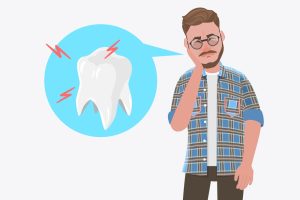The Science Behind Your Intensifying Hangover As You Age
As we age, it’s a common lament: hangovers get worse with age, turning last night’s fun into today’s ordeal. But why does this painful link between ageing and hangovers exist? This article dives into the scientific explanations behind this common phenomenon.
Ageing Body, Changing Metabolism
As we age, various physiological changes occur in our body, including a decline in metabolic rate. Metabolism is the process by which our bodies convert food and drink into energy. A slower metabolism in older adults means that the body takes longer to break down substances, including alcohol. This slowdown can have several consequences:
Prolonged Presence of Alcohol in the Body
A slower metabolism means that alcohol is processed at a reduced rate. This results in alcohol remaining in the bloodstream for a longer period of time. With age, the liver, which is responsible for breaking down alcohol, becomes less efficient. Consequently, older adults may experience prolonged and more severe effects of alcohol.
Increased Sensitivity to Alcohol’s Effects
As people age, they may become more sensitive to the effects of alcohol. This is partly due to a decrease in total body water and an increase in the proportion of body fat, which leads to higher blood alcohol concentrations when an older person drinks the same amount as a younger person.
More Severe Hangovers
Slower processing of alcohol can result in more intense and lasting hangovers in older individuals. The body’s ability to recover from the toxins produced when alcohol is broken down decreases with age.
Potential for Increased Health Risks
In older adults, the slowed metabolism and prolonged presence of alcohol in the system can exacerbate health conditions common to this age group, such as hypertension, liver disease, and cognitive decline.
A Closer Look at Dehydration
Dehydration is a well-established factor that contributes significantly to the severity of a hangover. When individuals consume alcohol, it acts as a diuretic, promoting increased urination and thus potentially leading to dehydration.
One of the primary reasons that hangovers can feel so severe is due to the dehydration that alcohol can induce. This dehydration can lead to symptoms such as dry mouth, dizziness, and lightheadedness, which are common components of a hangover.
As we age, our bodies’ ability to retain water decreases due to various physiological changes. For instance, the amount of water in the human body decreases with age, and the kidneys may become less efficient at conserving water when the body is dehydrated.
Additionally, the sensation of thirst may become less acute as we age, which means that older adults might not drink enough water, even when their bodies need it. Consequently, this age-related decrease in water retention and altered thirst perception can exacerbate the effects of dehydration, potentially making hangovers more severe in older adults.
The Enzyme Evolution
As we age, there may be significant changes in how our bodies process and metabolise alcohol. Two critical enzymes in the liver responsible for breaking down alcohol are alcohol dehydrogenase (ADH) and aldehyde dehydrogenase (ALDH). ADH initially metabolises alcohol (ethanol) into acetaldehyde, a toxic substance. ALDH then converts acetaldehyde into acetate, a less harmful substance.
Research suggests that the efficiency of these enzymes may decrease as we age. Reduced activity of ADH and ALDH means that alcohol and acetaldehyde (a toxic intermediate product of alcohol metabolism) may remain in the system for a longer period of time.
This can contribute to more prolonged and potentially severe hangover symptoms as we get older. The body struggles more to break down alcohol, and the increased presence of acetaldehyde can lead to symptoms like flushing, nausea, and increased heart rate, which are associated with hangovers.
Furthermore, older adults often have decreased liver volume and blood flow, which can further reduce the liver’s ability to metabolise alcohol effectively. This change, coupled with the decreased efficiency of ADH and ALDH, can contribute to longer and more severe hangover symptoms in older individuals.
How Getting Older Influences Hangover Severity
Pain Tolerance and Ageing
Research suggests that our tolerance for pain, including hangover symptoms, may decrease with age. This decreased tolerance can make hangovers feel more intense as we get older. Studies have shown that pain perception changes as people age, with older individuals often reporting increased sensitivity to pain. It is plausible that this increased sensitivity to pain might contribute to more severe hangover experiences as one ages.
Lifestyle and Nutritional Shifts
Our eating and drinking patterns typically change with age. Nutritional changes, such as a lower intake of vitamins and water, can exacerbate hangover symptoms.
As people age, they may consume fewer essential nutrients and less water, which are critical for metabolism and hydration. This might aggravate the body’s ability to recover from the effects of alcohol, possibly leading to more pronounced hangover symptoms.
Alcohol’s Impact on Sleep Quality
Alcohol disrupts the sleep cycle at any age, but as we age, our sleep is generally lighter and more fragmented. Drinking exacerbates this problem, as alcohol interferes with the sleep homeostasis and can reduce the proportion of rapid eye movement (REM) sleep.
Poor sleep is a major component of hangover symptoms. Older adults, who may already be experiencing degraded sleep quality, could therefore find that alcohol consumption has an even more pronounced negative effect on their sleep, and subsequently, their hangover severity.
Preventative Strategy
As a general preventative strategy, it can be beneficial to limit alcohol consumption, especially close to bedtime, and to practice good sleep hygiene. This can include maintaining a consistent sleep schedule, creating a relaxing bedtime routine, and making the sleep environment comfortable and conducive to sleep.
Final Thoughts on the Age-Hangover Connection
As we toast to another year, understanding the evolving relationship between hangovers and age becomes essential. It’s not just in your head – science confirms that hangovers do indeed get worse as we gracefully journey through life.
References
- Does the severity of hangovers decline with age? Survey of the incidence of hangover in different age groups – PubMed. (2014, February 1). PubMed. https://doi.org/10.1111/acer.12238
- Moore, A. A., Gould, R., Reuben, D. B., Greendale, G. A., Carter, M. K., Zhou, K., & Karlamangla, A. (2004, February 22). Longitudinal Patterns and Predictors of Alcohol Consumption in the United States. PubMed Central (PMC). https://doi.org/10.2105/AJPH.2003.019471
- The pathology of alcohol hangover – PubMed. (2010, June 1). PubMed. https://doi.org/10.2174/1874473711003020068
- Influence of age on thirst and fluid intake – PubMed. (2001, September 1). PubMed. https://doi.org/10.1097/00005768-200109000-00016
- Alcohol metabolism – PubMed. (2012, November 1). PubMed. https://doi.org/10.1016/j.cld.2012.08.002
- Verster, J. C., Kruisselbrink, L. D., Slot, K. A., Anogeianaki, A., Adams, S., Alford, C., Arnoldy, L., Ayre, E., Balikji, S., Benson, S., Bruce, G., Devenney, L. E., Frone, M. R., Gunn, C., Heffernan, T., Hensel, K. O., Hogewoning, A., Johnson, S. J., van Lawick van Pabst, A. E., . . . Stock, A. K. (2020, January 9). Sensitivity to Experiencing Alcohol Hangovers: Reconsideration of the 0.11% Blood Alcohol Concentration (BAC) Threshold for Having a Hangover. MDPI. https://doi.org/10.3390/jcm9010179
- Zhong, W., Zhao, Y., Tang, Y., Wei, X., Shi, X., Sun, W., Sun, X., Yin, X., Sun, X., Kim, S., McClain, C. J., Zhang, X., & Zhou, Z. (2011, November 14). Chronic Alcohol Exposure Stimulates Adipose Tissue Lipolysis in Mice: Role of Reverse Triglyceride Transport in the Pathogenesis of Alcoholic Steatosis. PubMed Central (PMC). https://doi.org/10.1016/j.ajpath.2011.11.017
- Irish, L. A., Kline, C. E., Gunn, H. E., Buysse, D. J., & Hall, M. H. (2014, October 16). The Role of Sleep Hygiene in Promoting Public Health: A Review of Empirical Evidence. PubMed Central (PMC). https://doi.org/10.1016/j.smrv.2014.10.001
- Sleep, sleepiness, and alcohol use – PubMed. (2001, January 1). PubMed. https://pubmed.ncbi.nlm.nih.gov/11584549/
-
Does the severity of hangovers decline with age? Survey of the incidence of hangover in different age groups – PubMed. (2014, February 1). PubMed. https://doi.org/10.1111/acer.12238
- A review of age differences in the neurophysiology of nociception and the perceptual experience of pain – PubMed. (2004, August 1). PubMed. https://doi.org/10.1097/00002508-200407000-00004













